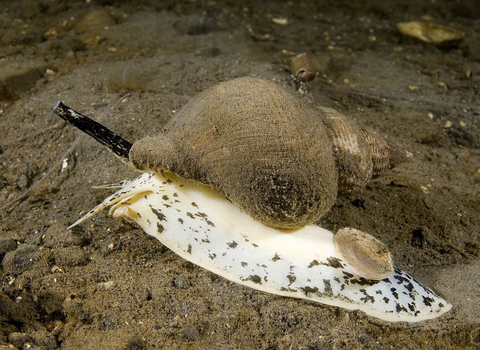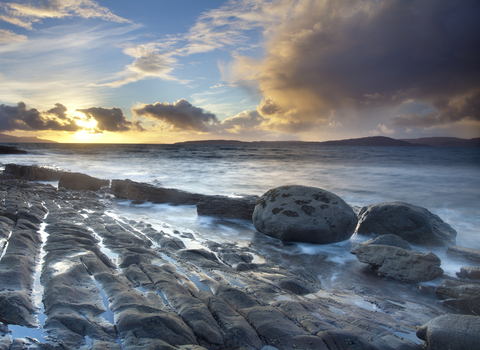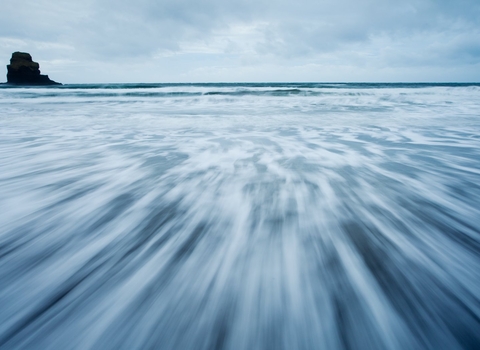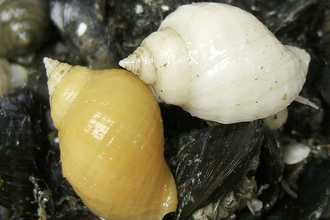
Whelk ©Paul Naylor
Whelk
The common whelk is the largest sea snail found in UK seas, though you're more likely to find the dry balls of empty whelk egg capsules washed up in strandlines.
Scientific name
Buccinum undatumWhen to see
January to DecemberSpecies information
About
The common whelk lives on sandy seabeds below the low tide mark. It is the largest sea snail found in our seas and therefore the largest snail shell you are likely to find on our beaches. It lays its eggs in a spongy mass of up to 2000 egg capsules on the seabed. Once hatched, these balls of empty egg capsules often wash up on shore.The common whelk is carnivorous and feeds on worms and other molluscs, often using the edge of its own shell to prize open other shells. It also scavenges for carrion, which it finds by smell.



